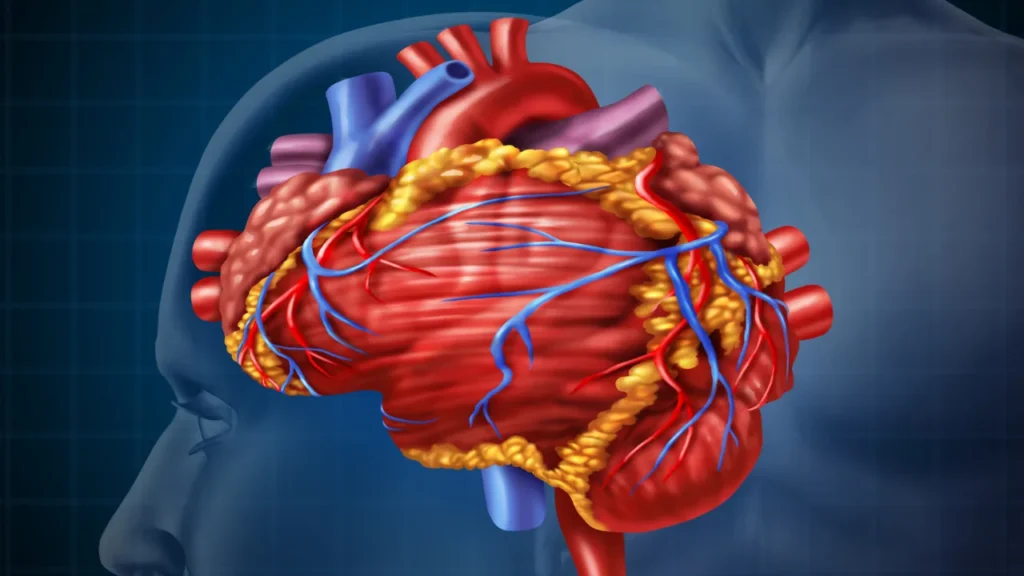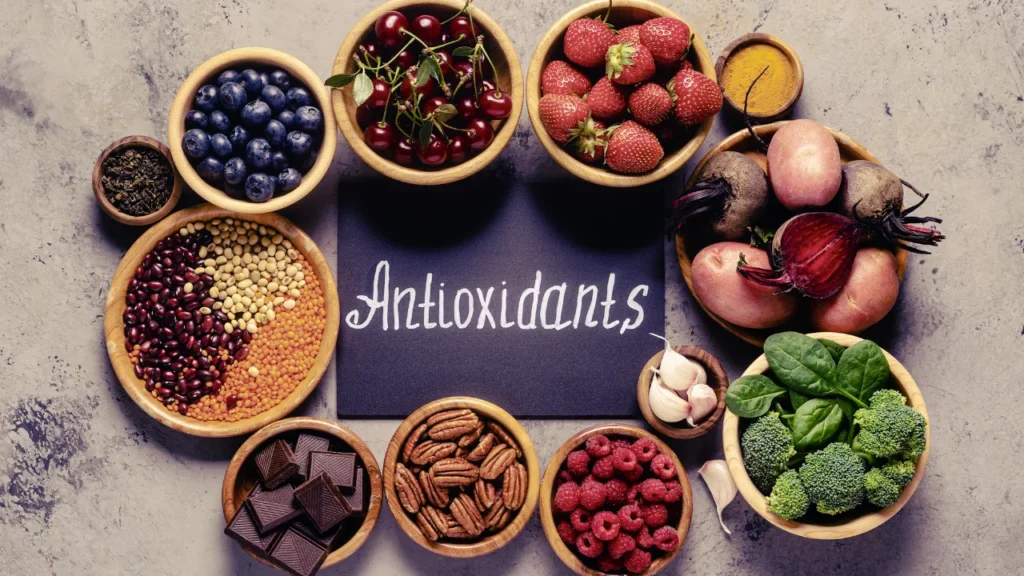Perillyl alcohol (POH), a naturally occurring monoterpene alcohol, has attracted scientific interest for its therapeutic potential and neuroprotective benefits. Originating in essential oils from lavender, spearmint, peppermint, and other herbs, perillyl alcohol possesses anti-inflammatory, antioxidant, and potential anticancer properties. Given its physiological impact on brain health, these attributes contribute to its possible use as a cognitive enhancer or nootropic supplement. Recent studies have explored POH’s role in supporting memory, cognitive clarity, and mood regulation. This article provides an in-depth examination of the sources, chemistry, physiological effects, cognitive benefits, dosing, side effects, interactions with other drugs and supplements, and safety considerations of perillyl alcohol.
You May Also Like:
Perillyl Alcohol: Potential Nootropic Benefits, Dosage, Side Effects, Interactions, and Other Important Information About This Supplement is an original (NootropicsPlanet) article.
Sources of Perillyl Alcohol
Perillyl alcohol is primarily found in essential oils from several plants, particularly those in the Lamiaceae family, and is present in some citrus fruits. Here are some notable sources:
- Lavender: Known for its calming properties, lavender oil contains moderate concentrations of perillyl alcohol, which contributes to its aromatic quality and neuroprotective potential.
- Peppermint and Spearmint: Essential oils from these herbs are rich in monoterpenes, including perillyl alcohol, which may promote cognitive stimulation, antioxidant protection, and anti-inflammatory benefits.
- Citrus Fruits: The peels of citrus fruits contain perillyl alcohol, which contributes to their antioxidant properties and provides a cognitive benefit when used as supplements or in culinary applications.
Support Your Natural Sleep Cycle and Wellness with Sleep Supplements—Buy Now on Amazon!
Chemistry of Perillyl Alcohol
The chemical structure of perillyl alcohol (C10H16O) is a critical component of its biological activity. Comprising a benzene ring with a hydroxyl (-OH) group, POH is derived from limonene, a common terpene found in citrus essential oils. In the body, perillyl alcohol is metabolized into perillic acid and dihydroperillic acid, both of which contribute to its therapeutic properties.
This lipophilic (fat-loving) quality of perillyl alcohol allows it to cross the blood-brain barrier easily, a vital feature for cognitive enhancement supplements. Once in the brain, it integrates into cell membranes, mitigating oxidative stress and modulating inflammation. This interaction with cellular structures is essential in understanding POH’s neuroprotective mechanisms.

Physiological Mechanisms of Perillyl Alcohol in the Body and Brain
Research suggests that perillyl alcohol affects brain health through several mechanisms, each of which plays a role in supporting cognitive function and mental clarity:
- Antioxidant Defense: POH’s hydroxyl group allows it to effectively scavenge free radicals, mitigating oxidative stress. This mechanism is vital for cognitive health, as oxidative damage contributes to neurodegenerative diseases and age-related cognitive decline. By reducing free radical accumulation, perillyl alcohol helps protect neurons and maintain brain function.
- Anti-inflammatory Pathways: Chronic inflammation in the brain is associated with cognitive impairment and mental fatigue. Perillyl alcohol has shown potential to downregulate inflammatory cytokines, particularly interleukins (IL-6) and tumor necrosis factor-alpha (TNF-α), both of which are linked to neuroinflammation. This anti-inflammatory effect may improve cognitive clarity and mental resilience, particularly under stress.
- Apoptotic Regulation in Neurons: Apoptosis, or programmed cell death, is necessary for cellular health but can be detrimental when dysregulated, as seen in neurodegenerative diseases. POH has demonstrated a capacity to inhibit excessive neuronal apoptosis, a benefit that helps preserve the structure of brain regions vital for memory, such as the hippocampus.
- Neurogenesis Stimulation: Early studies suggest that perillyl alcohol may promote neurogenesis, or the formation of new neurons, a process essential for memory and learning. By supporting synaptic plasticity, POH may help to enhance the brain’s adaptability and improve learning capacity over time.
Discover the Key to Better Brain Function with Potassium Supplements—Buy Now on Amazon!

Nootropic Benefits of Perillyl Alcohol
Perillyl alcohol offers promising cognitive benefits that may support its use as a nootropic:
- Memory and Learning Support: Research indicates that perillyl alcohol’s antioxidative and anti-inflammatory properties may protect neurons in memory-related brain areas, such as the hippocampus, from oxidative stress and inflammation, preserving learning and memory capacity.
- Mood Regulation and Anxiety Reduction: POH’s ability to influence inflammatory pathways and neurotransmitter synthesis suggests it may have anxiolytic (anti-anxiety) effects. Although not a replacement for clinical treatments, perillyl alcohol may help support mood stability and mitigate stress-related cognitive challenges.
- Neuroprotection Against Age-Related Decline: Oxidative stress is a significant factor in cognitive decline with aging. Perillyl alcohol’s antioxidant properties can preserve brain cells, potentially providing neuroprotection and reducing the risk of neurodegenerative diseases.
- Anti-Seizure Potential: While still in its early stages, research has noted that perillyl alcohol might exhibit anticonvulsant effects, suggesting benefits for individuals with epilepsy or similar conditions. Although this is not yet validated for clinical use, it highlights POH’s broader neuroprotective capabilities.

Dosage and Supplementation Guidelines
There is currently no universally established dosage for perillyl alcohol as a nootropic supplement. However, preliminary studies and anecdotal evidence offer some guidance:
- General Nootropic Dosage: For cognitive enhancement, a daily dose of 10-50 mg of perillyl alcohol, either as a pure supplement or in standardized essential oil form, is common. Most users start with lower doses, gradually increasing them to monitor individual tolerance.
- Higher Therapeutic Dosage: In clinical research for neurological support, up to 250 mg of perillyl alcohol per day has been used. Such dosages are generally reserved for controlled clinical settings and are not recommended without medical supervision.
- Supplement Forms: POH is available in standalone supplements and combined formulations with other nootropics. High-quality essential oil capsules are also common, though standardization can vary widely.
Enhance Restful Sleep and Improve Cognitive Function with Magnesium Glycinate—Buy Now on Amazon!

Side Effects and Safety
Perillyl alcohol is generally well-tolerated at moderate doses, though some users may experience side effects, particularly at higher concentrations:
- Gastrointestinal Upset: POH can cause mild gastrointestinal discomfort, including nausea, cramps, or diarrhea, especially if taken in high doses. These effects can be minimized by reducing dosage or taking the supplement with food.
- Headaches or Lightheadedness: Some individuals report mild headaches or dizziness when beginning POH supplementation, likely due to terpene sensitivity. Starting with a low dose and increasing gradually may help mitigate these symptoms.
- Photosensitivity: Although rare, some individuals may experience increased photosensitivity. If this effect occurs, it is advisable to monitor sun exposure.
- Allergic Reactions: Skin irritation or allergic reactions may occur, particularly when POH is applied topically in essential oil form. Diluting it with a carrier oil can minimize the risk of skin reactions.
- Respiratory Irritation: Inhaled perillyl alcohol may cause mild respiratory irritation in sensitive individuals. Nasal administration has occasionally been explored in clinical studies for cognitive health applications; however, this should only be conducted under professional guidance.
Interactions with Other Supplements and Medications
Perillyl alcohol may interact with certain medications and supplements, necessitating caution for individuals on specific regimens:
- Anticoagulants and NSAIDs: POH can influence blood vessel function, potentially heightening the effects of anticoagulants like warfarin or NSAIDs. This interaction increases the risk of bleeding, warranting medical guidance for individuals on such medications.
- Anti-inflammatory Supplements: When taken with other anti-inflammatory supplements, such as curcumin or omega-3 fatty acids, perillyl alcohol’s effects on inflammation may be amplified. This combination can be beneficial, but excessive inflammation reduction could affect immune function.
- Anticonvulsants: Initial findings suggest that perillyl alcohol has anticonvulsant potential, which may interact with medications prescribed for seizure disorders. Therefore, individuals taking anticonvulsants should consult a healthcare provider before using perillyl alcohol.
- Other Nootropics: POH can be safely combined with other nootropics, such as racetams or choline-based supplements, to enhance cognitive effects. However, because perillyl alcohol affects neurotransmitter pathways, excessive use of these nootropics could lead to overstimulation, resulting in symptoms like nervousness, agitation, or insomnia.
Risks for Individuals with Certain Health Conditions
While perillyl alcohol is safe for most people, it may pose risks for those with particular health conditions. Caution and professional advice are recommended for the following groups:
- Liver Disease: POH is processed in the liver as a limonene metabolite. High doses may place undue stress on liver function, so individuals with liver conditions should avoid excessive or unsupervised use of perillyl alcohol.
- Kidney Disease: The renal effects of POH are not yet fully understood, but those with compromised kidney function should use it cautiously to avoid potential strain on renal processing.
- Pregnant and Breastfeeding Women: Due to limited research on POH’s safety for pregnant or breastfeeding women, it is generally advised that these populations avoid supplementation.
- Autoimmune Disorders: POH has immune-modulating effects, which may interfere with managing autoimmune diseases. Patients with autoimmune conditions should discuss POH supplementation with a healthcare provider.
Discover the Key to Better Brain Function with Potassium Supplements—Buy Now on Amazon!

Conclusion:
Should You Consider Perillyl Alcohol as a Nootropic?
Perillyl alcohol presents an intriguing option for cognitive support, offering neuroprotective, anti-inflammatory, and antioxidant effects that can enhance brain health. It shows promise for memory support, mood regulation, and mental clarity, making it a potential addition to a nootropic regimen. While it is not a substitute for a balanced lifestyle or other well-researched cognitive health practices, POH may provide added support for individuals seeking to optimize their cognitive abilities or protect against age-related mental decline.
Despite promising findings, the scientific evidence surrounding perillyl alcohol’s nootropic effects is still developing. Before beginning supplementation, individuals are encouraged to consult a healthcare provider, particularly if they have pre-existing conditions or are taking medications that might interact with POH. With a focus on high-quality products, appropriate dosages, and careful monitoring, perillyl alcohol can be integrated into a cognitive health plan, contributing to better mental clarity, resilience, and overall brain well-being.

References:
- Perillyl Alcohol – Uses, Side Effects, and More. Retrieved from: https://www.webmd.com/vitamins/ai/ingredientmono-1161/perillyl-alcohol
- Perillyl alcohol: applications in oncology. Retrieved from: https://pubmed.ncbi.nlm.nih.gov/9855569/
- The Monoterpenoid Perillyl Alcohol: Anticancer Agent and Medium to Overcome Biological Barriers. Retrieved from: https://pmc.ncbi.nlm.nih.gov/articles/PMC8709132/
- Perillyl Alcohol and Its Drug-Conjugated Derivatives as Potential Novel Methods of Treating Brain Metastases. Retrieved from: https://pmc.ncbi.nlm.nih.gov/articles/PMC5037741/
Important Note: The information contained in this article is for general informational purposes only, and should not be construed as health or medical advice, nor is it intended to diagnose, prevent, treat, or cure any disease or health condition. Before embarking on any diet, fitness regimen, or program of nutritional supplementation, it is advisable to consult your healthcare professional in order to determine its safety and probable efficacy in terms of your individual state of health.
Regarding Nutritional Supplements Or Other Non-Prescription Health Products: If any nutritional supplements or other non-prescription health products are mentioned in the foregoing article, any claims or statements made about them have not been evaluated by the U.S. Food and Drug Administration, and such nutritional supplements or other health products are not intended to diagnose, treat, cure, or prevent any disease.


